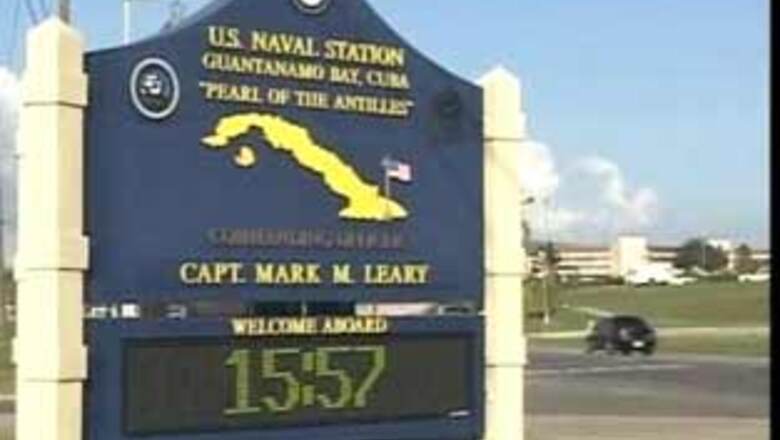
views
Washington: The official overseeing tribunals for Guantanamo Bay inmates has said the US military tortured a Saudi man accused of planning to take part in the September 11, 2001, attacks, prompting calls for his release.
"We tortured Mohammed al- Qahtani," Susan Crawford said in an interview with the Washington Post published on Wednesday.
"His treatment met the legal definition of torture. And that's why I did not refer the case" for prosecution.
Crawford, a retired judge who also worked in the Reagan administration, is the first senior Bush administration official responsible for reviewing practices at Guantanamo to publicly state that a detainee was tortured.
Bush and Vice President Dick Cheney have said that the United States does not torture.
The American Civil Liberties Union described the admission as "stunning" but said the Bush administration was still planning, on its final full day in office, to prosecute other detainees who had been tortured.
A hearing is scheduled for January 19, a day before President-elect Barack Obama takes office.
He is expected to issue an executive order to close the Guantanamo Bay prison.
Crawford told the Post the techniques used in Qahtani's case were authorized but applied in an overly aggressive and too persistent manner.
"This was not any one particular act; this was just a combination of things that had a medical impact on him, that hurt his health. It was abusive and uncalled for. And coercive. Clearly coercive. It was that medical impact that pushed me over the edge" to call it torture, Crawford said.
CHENEY DEFENDS POLICY
Cheney said he did not know the details of Qahtani's interrogation but defended the use aggressive techniques, which he insisted were legal, to gain information. "It's entirely possible that it was a problem in terms of how one specific prisoner was handled.
I can't claim perfection," Cheney told PBS television's "News Hour."
"I can tell you what the policy was. I can tell you that we had all the legal authorization we needed to do it, including the sign-off of the Justice Department," he said. "I can tell you it produced phenomenal results for us and a great many Americans are alive today because we did all that."
US defense officials said a review of Qahtani's 2002 interrogation concluded the methods were lawful at the time.
But Pentagon spokesman Bryan Whitman said investigators did note the "cumulative effect" of aggressive interrogations on the alleged 20th hijacker.
"The application of the techniques in a cumulative sort of way raised some concerns," he said without providing details.
The Defense Department no longer allows those "special interrogation techniques," which Whitman said were used on a very small number of detainees at the prison in Cuba.
The CIA, however, is allowed to use more aggressive interrogation techniques than the military.
AMNESTY CALLS FOR RELEASE
Crawford dismissed war crimes charges against Qahtani in May 2008 but he remains at Guantanamo.
Crawford said he is dangerous and that she would be hesitant to say 'Let him go.'
The Center for Constitutional Rights, a New York-based group that represents Qahtani and other Guantanamo detainees, said he should be released to Saudi Arabia.
"The fact is, if the only evidence against an individual is obtained through torture, there is no reliable evidence. Period," the group said in a statement.
Amnesty International said Qahtani should be freed unless the US government was prepared to recharge him promptly before an independent court, not a military commission.
US officials say Qahtani was denied entry to the United States a month before the September 11 attacks and was planning to be the plot's 20th hijacker.
He was later captured in Afghanistan. Despite Obama's pledge to close the Guantanamo prison, which still holds about 250 men, it is unlikely to shut until US officials settle legal and practical issues, including where to house its occupants.
The Senate Armed Services Committee said last month former Defense Secretary Donald Rumsfeld's decision to authorize aggressive interrogation techniques at Guantanamo in 2002 contributed directly to detainee abuse there and at other prisons which opened up the United States to accusations of torture.




















Comments
0 comment